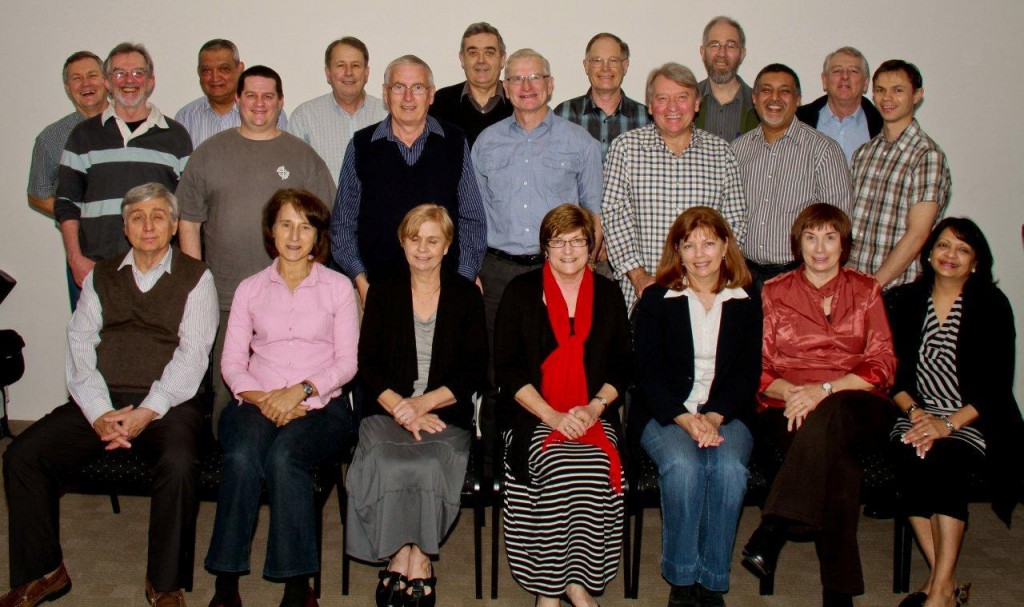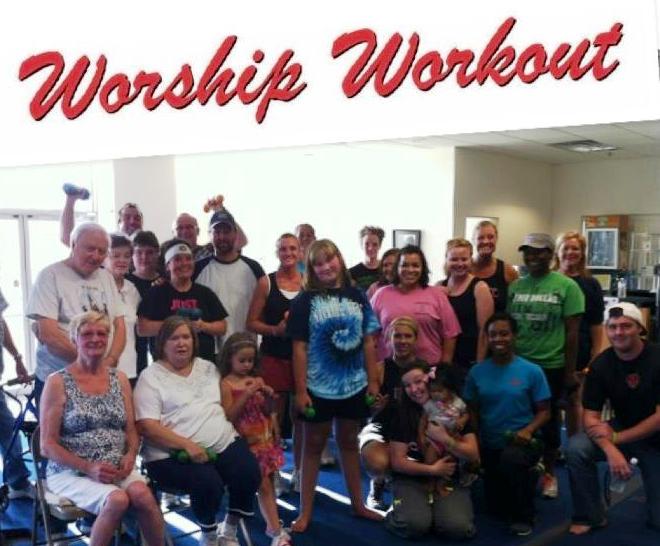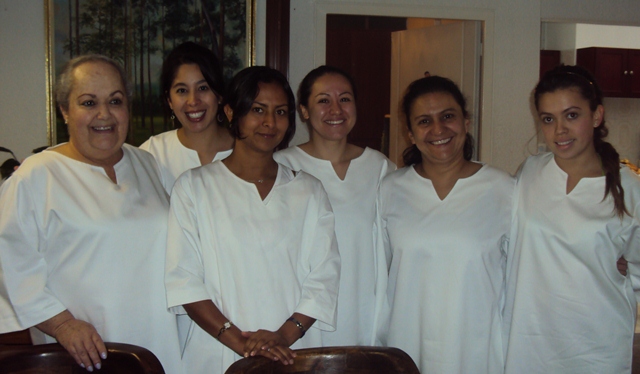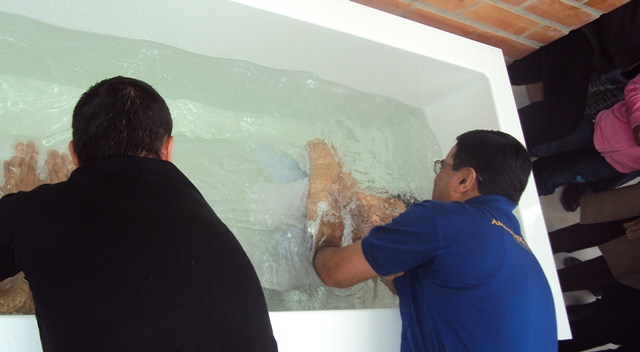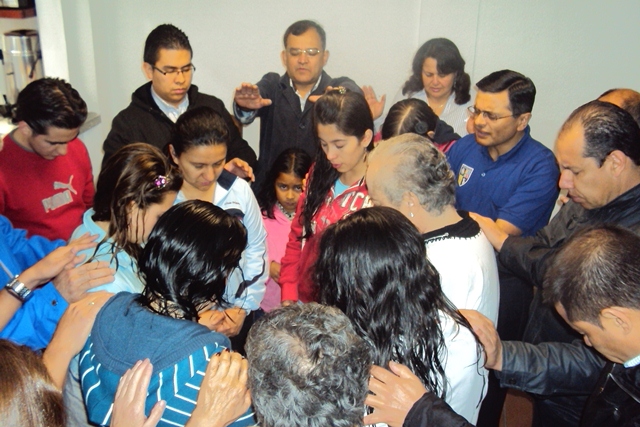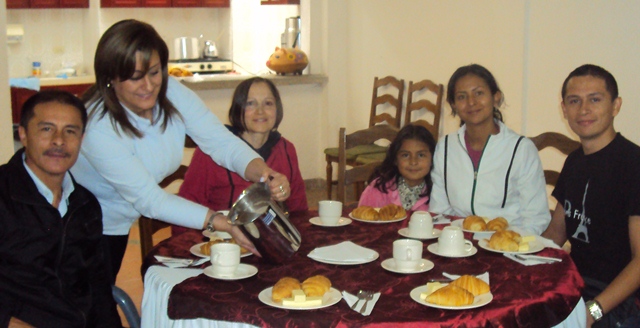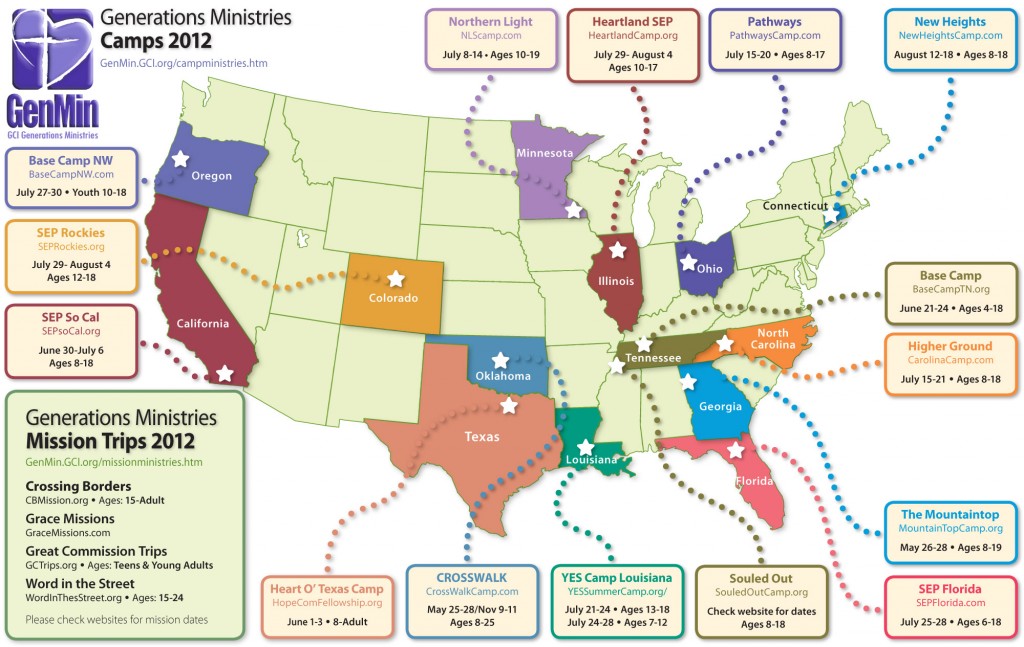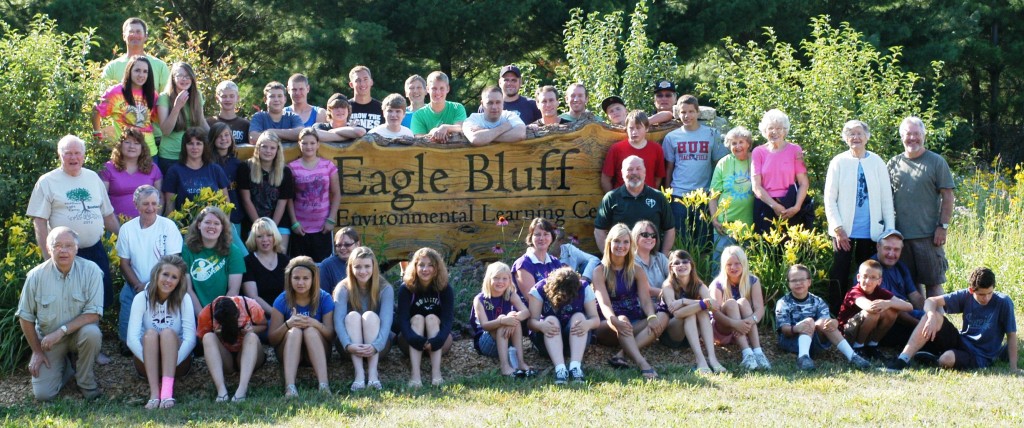Here is a group picture from the recent GCI Australia Pastors Conference. Click here for additional pictures on Facebook (you must be signed into FaceBook to view these).
Category: Stay Connected
Worship Workout
This update is from Jeff Chandler who pastors the GCI church in Jonesboro, Arkansas.
We recently launched a new service/outreach project named Worship Workout. It’s being held at Fitness Bootcamp Unlimited. About 26 people attended the first session.
I opened the session with prayer, which was followed by a 35 minute “Full Body & Soul” workout accompanied by Christian music. I then asked everyone to have a seat on the floor and gave a 10 minute message about our physical and spiritual health. We then ended in prayer.
It was a CRAZY GOOD and we now are praying that it grows and that some who attend will move on over into our church congregation.
Colombian members interviewed
Sonia Orozco, pastor of GCI’s church in Barranquilla, Colombia and several members from her congregation joined recently with Hector Barrero (Colombian GCI National Director) for a radio interview in which they discussed how the church is like an extended family.
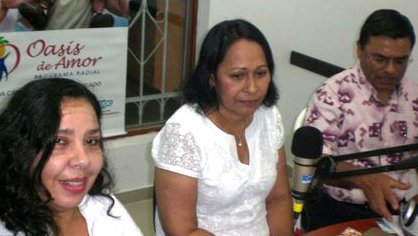
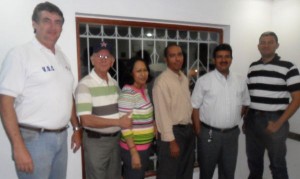
Members in Muslim countries
This update is from Eugene Guzon, GCI National Director for the Philippines and one of the Mission Directors serving Asia, the Philippines, Australia and Oceania.
Beginning on July 20, Muslims around the world celebrate Ramadan, a month of spiritual reflection, increased focus on the Muslim faith, charity toward the poor and the avoidance of fighting with others. However, Ramadan this year is being marked by political uncertainty and violence in many Muslim countries in the Arabian Peninsula and in North Africa. In particular, violence is rampant in Syria and Bahrain. Even in Dubai, which is more stable politically and peaceful, people have been arrested on charges of anti-government activity.
This is the situation faced by many of our GCI members living in primarily Muslim countries in the Middle East and North Africa. Due to the violence and political unrest in Syria, the Philippine Embassy began to evacuate thousands of Filipinos who are working there. In the Philippines, we just had another round of oil price increases as a consequence of the political unrest in the Middle East. It is amazing how the world has become like a small village. Our lives are interconnected and we are impacted by what is happening thousands of miles away.

I was in Dubai and Abu Dhabi recently. Pastor Cesar Dela Paz picked me up at the airport and we had a chance to meet and have some personal and ministry updates. Our days were full with birthday celebrations, a house blessing, a worship service, meetings with leaders, and a time of prayer, sharing and planning concerning how the Dubai church can be empowered and mobilized for discipleship and ministry. We also planned for a retreat or special celebration this coming November.
Our members in Abu Dhabi, Dubai and other Emirates are a cross section of the guest workers and professionals there. Some work as professionals in private and government offices, and some work as domestic helpers. It is a blessing that some are able to have their families with them, however, many face difficult working conditions.
One of our members recently tried to flee the country where she was working due to the harsh working conditions but was caught and detained. She is now receiving legal help, hoping to get back to the Philippines soon. One of the inspiring things that happened to her was that despite being a rather timid person, in the detention center she became bold in leading Bible studies and offering counsel and encouragement to those detained with her.
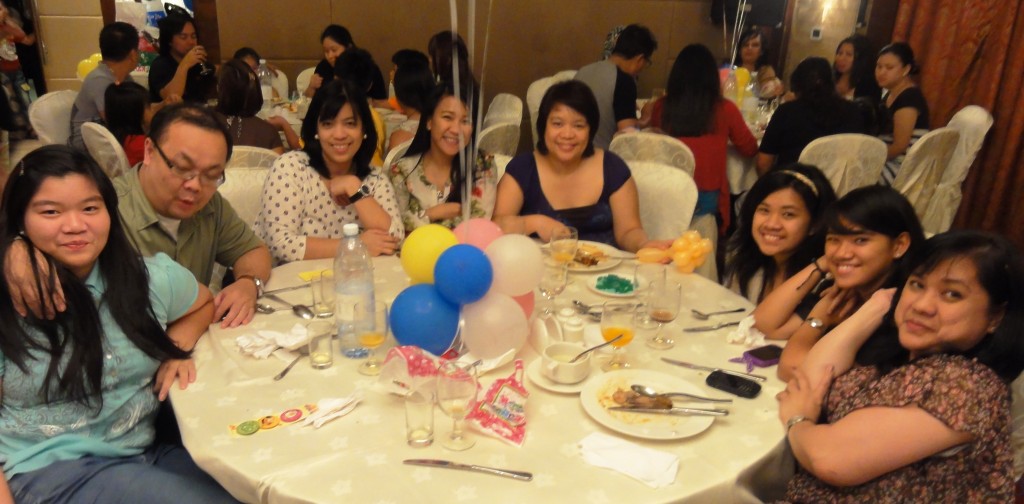
Our worship services in Dubai are held on Friday afternoons. The service I attended on July 6 was typical, attended by about 40 members. For the past several years, the congregation has had to transfer their service to other venues due to increasing costs. There is also speculation that the government will be imposing new restrictions on Christian worship services, allowing them only in specified locations. This would make it even more difficult for some of our members to attend services due to the distances involved. Not all of our members there have cars and transportation otherwise can be cumbersome and expensive. In the meantime, they are still able to worship freely and regularly in a hotel in downtown Deira in Dubai.
Let us continue to pray for our members in Dubai and other Emirates. Please also pray for those scattered in other countries in the Middle East like Oman, Bahrain, Qatar and Saudi Arabia. These countries are more conservative in their religious practices, and some also are politically in transition right now. Our members there are facing even greater challenges to practicing their faith and, depending on where they live and work, also are concerned about their personal safety. Please also pray for greater peace in the Middle East and the Northern African regions and that during Ramadan, God will lead many Muslims to know of his unconditional love for all people and of the peace of God that surpasses all understanding.
Daniel Leon’s outreach
Daniel Leon, a member of GCI’s New Hope Christian Fellowship in Los Angeles and veteran of GCI camps and mission trips, has partnered with Hayden Betts to form D&H Tractors. The work of this volunteer organization was profiled in a Pasadena News Now article (see below) and mentioned in The Garden, an Academy Award-winning documentary film (see the film trailer at www.dandhtractors.org).
D&H Tractors is building a tractor that will be used by the South Central Farmers Co-op. This group of community farmers/gardeners previously farmed a 12-acre tract in South-Central Los Angeles. There hundreds of inner-city families gained self-reliance, produced food for their families and learned lessons of hard work and community unity. Sadly, the co-op lost access to the garden when the property was sold. However, 120 acres of land became available to the Co-op in Shafter, California, some 100 miles north of Los Angeles. This property cannot be farmed effectively without machinery; hence, Daniel and Hayden’s vision to build and then donate a working tractor for the co-op’s use.
Daniel and Haden are building the rather sophisticated tractor from scratch. They have partnered with local businesses to acquire (and sometimes build) the parts. They are also using donated space and equipment to assemble the tractor. So far, they have spent hundreds of hours on the project.
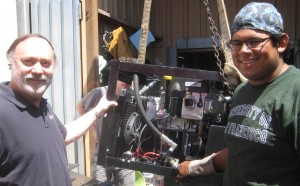
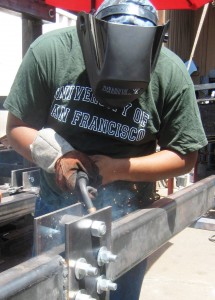
Bogota church baptistry
GCI’s congregation in Bogota, Colombia used to conduct baptisms at a nearby swimming pool. However, this arrangement seemed inadequate. And so, the congregation constructed a new bautisterio (baptistry) in their church hall and inaugurated it recently with six baptisms. As shown below, their baptism service includes baptismal robes, immersion in the baptismal pool, prayer and a celebration breakfast.
Evangelistic small groups in Ohio
GCI’s congregation in Tipp City, OH (CrossRoads Christian Fellowship) has been actively forming evangelistic small groups that reach out to unchurched people. They first invite people to participate in the Alpha course conducted in their church building. Those who show interest in following Christ are invited to participate in follow-up small group discussions using The Hope of Jesus, a small-group curriculum grounded in Trinitarian theology that was written by CrossRoads pastor Jim Valekis.
Not only do these small groups provide opportunity for unchurched people to be discipled, they also serve as opportunities for existing members who are emerging leaders to become small group facilitators. If you’d like to learn more about CrossRoad’s experience using these tools, email Jim.Valekis@gci.org. Also see GCI’s FaithTalk equipper website, which offers various resources that help congregations form small groups that are safe places where spiritually interested unchurched people are encouraged to discuss matters of faith.
Visit from Texas Governor
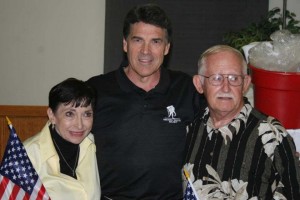
The office of Texas Governor Rick Perry recently telephoned Sonny Parsons, the senior pastor of GCI’s church in Big Sandy, Texas. They asked if the Governor might attend the congregation’s community-wide waffle breakfast being held in celebration of the Fourth of July. They mentioned that the Governor wanted to share in an Independence Day celebration in a rural Texas community, and picked Big Sandy and our church as the place to do so.
Sonny reports that the Governor seemed to greatly enjoy his visit.
U.S. camps map
Here is a map that shows camps in the U.S. sponsored by GCI Generations Ministries (click on the map for a larger view). For information about these camps, go to http://genmin.gci.org/campministries.htm.
Camp reports
Northern Light Camp (U.S.)
This update is from Todd Fox, former director of Northern Light Camp, the GCI Generations Ministries camp held at the Eagle Bluff Environmental Learning Center in Lanesboro, Minnesota.
We recently completed our 2012 camp with 27 campers and 26 staff members. We felt it was the smoothest running camp yet, due in large part to our highly experienced staff members.
Our camp theme was Rooted, with Nathan Keating (who wrote the song Rooted) leading chapel worship.
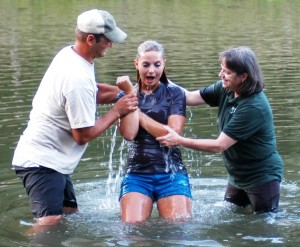 A joyous camp highlight was the baptism of two campers (with two others planning to be baptized back home). Another highlight was a ceremony in which camp director Todd Fox passed the baton of Northern Light Camp director to Troy Meisner.
A joyous camp highlight was the baptism of two campers (with two others planning to be baptized back home). Another highlight was a ceremony in which camp director Todd Fox passed the baton of Northern Light Camp director to Troy Meisner.
Camp activities included back-country camping, trail hiking, high ropes, rock climbing, canoeing and archery. Various classes gave the youth opportunity to develop skills in art, finance, writing, leadership, videography, photography, wood working, worship leading and other areas. The week closed with an exhibit of these skills and musical entertainment from Ross Jutsum.
Silvermeadows Camp (Canada)
This update is from Gary Moore, GCI national director for Canada, concerning the GCI summer camp held in western Canada.
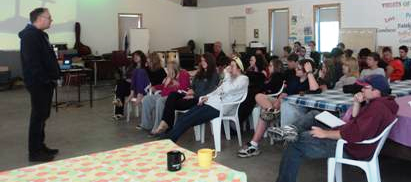 Counting campers, pre-teen campers and staff, we had about 80 involved in a most profitable and Christ-centered week of camp. My wife Wendy and I were most impressed with the dedication of the staff who sacrificed their time and comfort to serve in such a meaningful way.
Counting campers, pre-teen campers and staff, we had about 80 involved in a most profitable and Christ-centered week of camp. My wife Wendy and I were most impressed with the dedication of the staff who sacrificed their time and comfort to serve in such a meaningful way.
On the last day of camp, we witnessed a wonderful event – the baptism of Natasha and Bryce Minke in Lake Nakamun.


